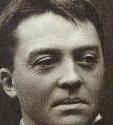Spook043
Posts: 42
Joined: 8/21/2003
Status: offline

|
This certainly is stepping off the beaten path of usual "Who did what right & wrong in various Pacific operations," but what the hey....
Was an earlier time (before wife & kids) that I paid multiple visits to the Gettysburg battlefield to have a look-see and get a sense of the terrain and vantage points. Funny thing, though, in the more recent years with much done in landscaping and clearing to restore some of the battletime appearance, that I still haven't gotten over.
Anyway, for anyone wanting to get into reviewing the command decision perspective, Edwin Coddington's "The Gettysburg Campaign" is required reading. Some of its info is dated (first print was the 1960's), but the late Coddington mined down deep IMO on the notable decision points, as well as pointing out some others often papered over.
Case in point of Ewell: so often the view is of whether or not Ewell should have pressed on to take Cemetery Hill in the later hours of 1 July. Given that Early felt his division was too "disrupted" moving through Gettysburg's streets, I actually don't hold much against Ewell not pressing Early to push on. If anything, Lee could just as well pressed harder with the divisions of Johnson (Ewell) and Anderson (Hill) that had come up that same late afternoon and evening from Chambersburg Pike and the northwest. What I do hold against Ewell was his insistence to maintain an extended frontage that stretched out his corps. At one point on the night of 1/2 July, Lee actually ordered for Ewell to pull back and reform further to the south, more along Longstreet's argued scheme. Ewell, not wanting to "give up ground," offered to Lee that he would "demonstrate" aggressively on his front the next day during Longstreet's expected push, and Lee relented. Coddington noted all of this.
As to Stuart -- allowing for all the circumstances against him, his ultimate command discretion fell short. He should have recognized, especially with a campaign into unfamiliar Union territory, that the greater bulk of the ANV cavalry was supposed to function as a screen for Lee's columns (and thus maintained contact throughout) instead of slowing leveraging into being an oversized, unwieldly raiding party. However, one myth to dispel is of Lee being completly "blind." He did hold back some cav brigades from Stuart, and one such was even attached direct to Ewell. Yet, ironically, even those cav units available to Lee at the critical time before midday of 2 July were not used very aggressively at feeling out where Meade was and where he wasn't.
I think much of what was done postwar to pin blame on Longstreet was ridiculous. But "Ol' Pete" doesn't quite get a free pass either. His march and countermarch on 2 July was just plain clumsy and wasted too much time. Longstreet felt when being spotted from Little Round Top that he had to backtrack his whole corps (instead of just having the column "about face"), but his artillery chief Alexander didn't backtrack his own artillery but was able to find and use a backslope path that kept his own column covered.
But ultimately to Lee, his was the responsibility to get his commanders moving when he resolved to stay engaged. Some sources hold that Lee had taken ill on 2 July, and that has to be allowed for if true. But the way that time was just burned away on 2 July in the way that it was did the most to decide the battle's ultimate outcome. Even the Union 6th Corps had come up before Longstreet started attacking that day. Fairly said in hindsight, it would've been better to press immediately in the early morning of the 2nd from Seminary Ridge right towards Cemetery Hill. That morning was particularly foggy, and the "Sunken Lane" running southwest of Gettysburg could have afforded some cover before closing the final distance to the Union positions there.
Again, though, many things can seem more obvious in hindsight.
Pickett had one inspired comment about how the CSA lost at Gettysburg. "I think the Yankees had something to do about it." They did indeed. Sure, some like Sickles had their missteps. But many a Union leader rose to the occasion at the critical moment, all up and down the field, on each day. The Union troops and commanders showed themselves too tough a nut to crack on this field. And after the Union army's consolidation by the afternoon of 2 July, the best chances for Confederate victory had gotten by. Allowing Sickles' mistake of extending himself and the collateral damage to Union 2nd & 5th Corps to shore things up, the reserves and interior lines still favored Union recovery.
Not that victory was absolutely impossible for the CSA after midday on 2 July. War still allows for those outlier events. Just that the probabilities for success went down a sharp downslope afterwards.
And that ultimately was Lee's responsibility. IMO.
|
 Printable Version
Printable Version



















 New Messages
New Messages No New Messages
No New Messages Hot Topic w/ New Messages
Hot Topic w/ New Messages Hot Topic w/o New Messages
Hot Topic w/o New Messages Locked w/ New Messages
Locked w/ New Messages Locked w/o New Messages
Locked w/o New Messages Post New Thread
Post New Thread